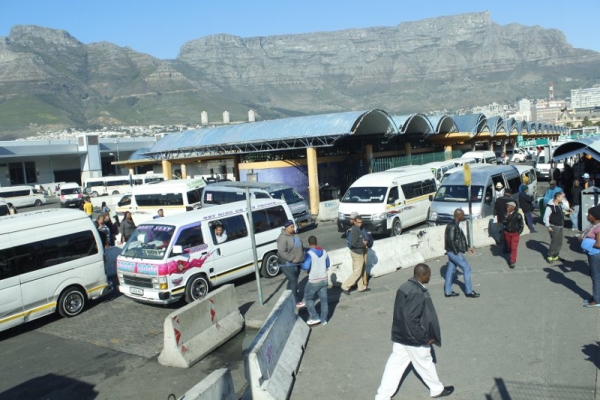

Driving is one of the tasks likely to be automated in the next decade or two. Photo by Masixole Feni.
11 January 2016
Oh, when will they ever learn? I have quoted that line from a Pete Seeger song several times in the past. And, as we enter fully into 2016, it keeps recurring to me as I listen to various proposals for the economic future.
But at least, in new year assessments, we now seem to have broad agreement that, both nationally and globally, we are in for a rough ride. There is little or no talk of a turn-round, of the system righting itself, at least in the short to medium term.
And there has been growing recognition in recent comments that automation — the rise of the robots — will severely impact on the future of work; even some acknowledgement that we may be on the brink of “an industrial revolution of unmitigated cruelty”.
That analysis was made in 1949 by the father of cybernetics, Nortbert Wiener when he realised that almost all human activity could be carried out by machine. It was just a matter of developing the very technologies that we now possess.
In previous economic transformations, factories absorbed handcraft workers and peasants forced off the land. And when increasing automation required fewer factory workers, service industries opened up to absorb those displaced.
Now we are on the cusp of a time when all work could be done by machine. And our existing system cannot adequately cope because it is based on competition and accumulation, where an increasingly wealthy minority remains in anarchic control of economies everywhere.
Yet there is little sign of any move to design or promote a system that can cope; that could ensure that the technological advances made can be utilised for the benefit of humanity as a whole. Instead, there is a grasping at myths of the past. And these are usually based on the assumed independence of nation-states.
On the one hand, there is the call, for example, for South Africa to become more competitive, ignoring completely that this is one of the causes of the present crisis of over production and capacity. It is a call heard from the icons of capital and from the trade union movement, simultaneously pandering to the reactionary notion of nationalism.
Both groups also promote the admirable goal of better education. But in and of itself, this is no answer to massive future joblessness.
Supporters of the present system also tend to rely on the myth that laissez faire capitalism is the end of economic history; that it is merely a matter of tinkering with liberal economic policies, providing more or less regulation, to set everything right: a classic case of back to the future.
The major argument in apparent opposition to this comes from within the labour movement and from powerful voices in the governing ANC and in the SA Communist Party. Often more jargon ridden than the capitalist contribution, their solution is also a case of reaching to the past to provide answers for a future usually dubbed “socialism”.
This proposal is for a system of state welfare, regulation and control, of a nation united in competition with the rest of the world. So only the management structure of the national economy changes; the underlying competitive and accumulative dynamic remains the same.
This is what, 130 years ago, Count Otto von Bismarck, a capitalist to the core, called “state socialism”. He could, more accurately, have labeled it state capitalism, a system that applied in the former Soviet Union and still applies, to one degree or another, in other, similarly organised states, including China.
Since the proposed multi-class “economic Codesa” has not got off the ground these are the issues that should be thoroughly dealt with if the planned workers’ summit takes place in February or March. But if there is no acceptance that we are starting to face Wiener’s “industrial revolution of unmitigated cruelty” it could become yet another sterile talk shop.
The same will apply if debate is controlled and answers are sought in failed experiments of the past. Because it is not just a new year, but a new world that lies ahead: we either opt for change or continue what is already looking like a descent into global barbarism.
Views expressed are not necessarily GroundUp’s.